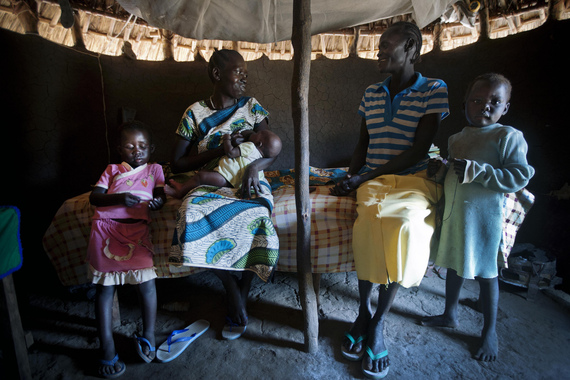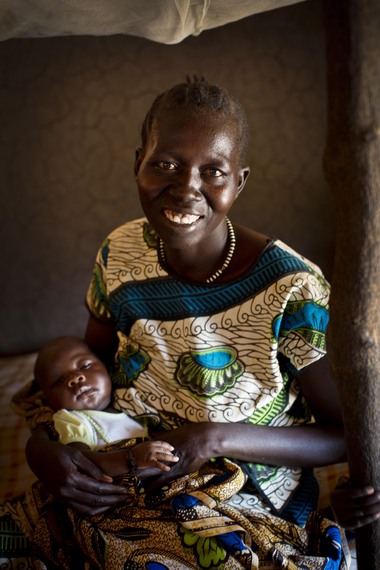The bed takes up most of the room in Martha Martin Mudari's mud-and stick-lathed hut in the small village of Lanyi in South Sudan. A clean plaid tablecloth covers the mattress where the 24-year-old Martha sits, cradling baby Sarah. In one corner, a tiny charcoal stove burns. In another, a chicken dozes. The family's tin pots are neatly stacked on a worn wooden table and 3-year-old Helen waits patiently as her mother finishes speaking.
"The pain started at night but I didn't tell anybody," she explains. "I was lying on the bed. I wasn't sure the baby was coming. When I started feeling the labor, I started pushing."
Within the hour, Martha had given birth and was bleeding profusely, a condition known as postpartum hemorrhage. She is one of 14 million women who experience excessive blood loss following childbirth every year, making postpartum hemorrhage the leading cause of maternal deaths. Of these 280,000 deaths, most occur in the developing world, and shockingly, most are preventable.
Martha was one of the lucky ones. A trained community health worker appeared at her home that night and moved swiftly. She checked to make sure a second baby wasn't on the way, then she reached for a packet of three white pills, the drug misoprostol, and gave them to Martha.
As the community health worker massaged the mother's stomach, the medication took effect and the bleeding stopped. For Martha and millions of pregnant women at risk, there may be no greater gift than these three white pills.
In the two districts where Jhpiego works in South Sudan, woman after woman speaks of the lifesaving power of misoprostol and the community health workers who help prepare her for a safe birth if she can't reach a health facility in time. Community health workers, like the one who helped Martha, are part of a growing network worldwide engaged in this innovative initiative.
While these same community health workers explain the benefits of giving birth at a health facility, the reality is that many women in the developing world still give birth at home, often times alone. At Jhpiego we are working to change that reality in any number of ways: educating the next generation of nurses and midwives, strengthening the skills of frontline health workers now on the job, improving the quality of health facilities, working with health administrators to develop policies that promote respectful care of women. But first and foremost, we are working to save women's lives. South Sudan is a prime example -- the world's newest country, with the highest maternal death rate, where less than 40 percent of women give birth with a skilled health care provider. With the proper training and in combination with interventions like the home-based distribution of misoprostol, community health workers are helping to prevent the mothers of South Sudan--and women around the world -- from dying while giving life.
During this holiday season, help Jhpiego give the greatest gift of all, life. With your generous support of our programs, more women will give birth in safe conditions with help by their side. Join us in celebrating #GivingTuesday, a national celebration of our great tradition of generosity during the holiday season, by visiting our #GivingTuesday page and donating today.

